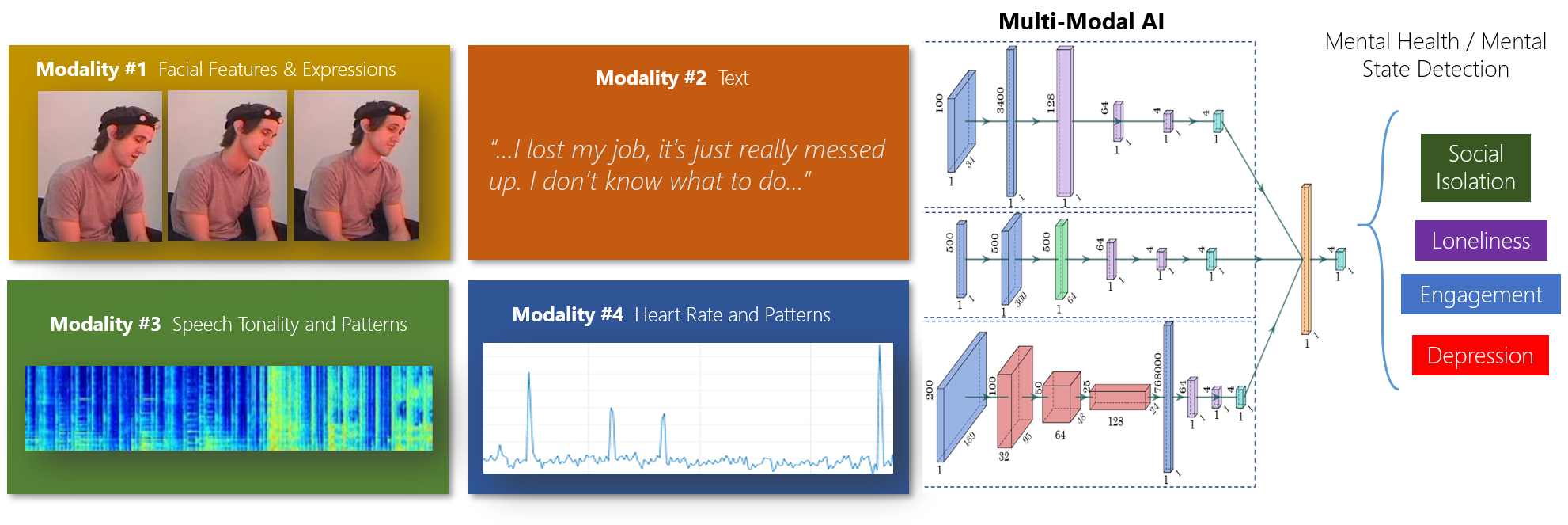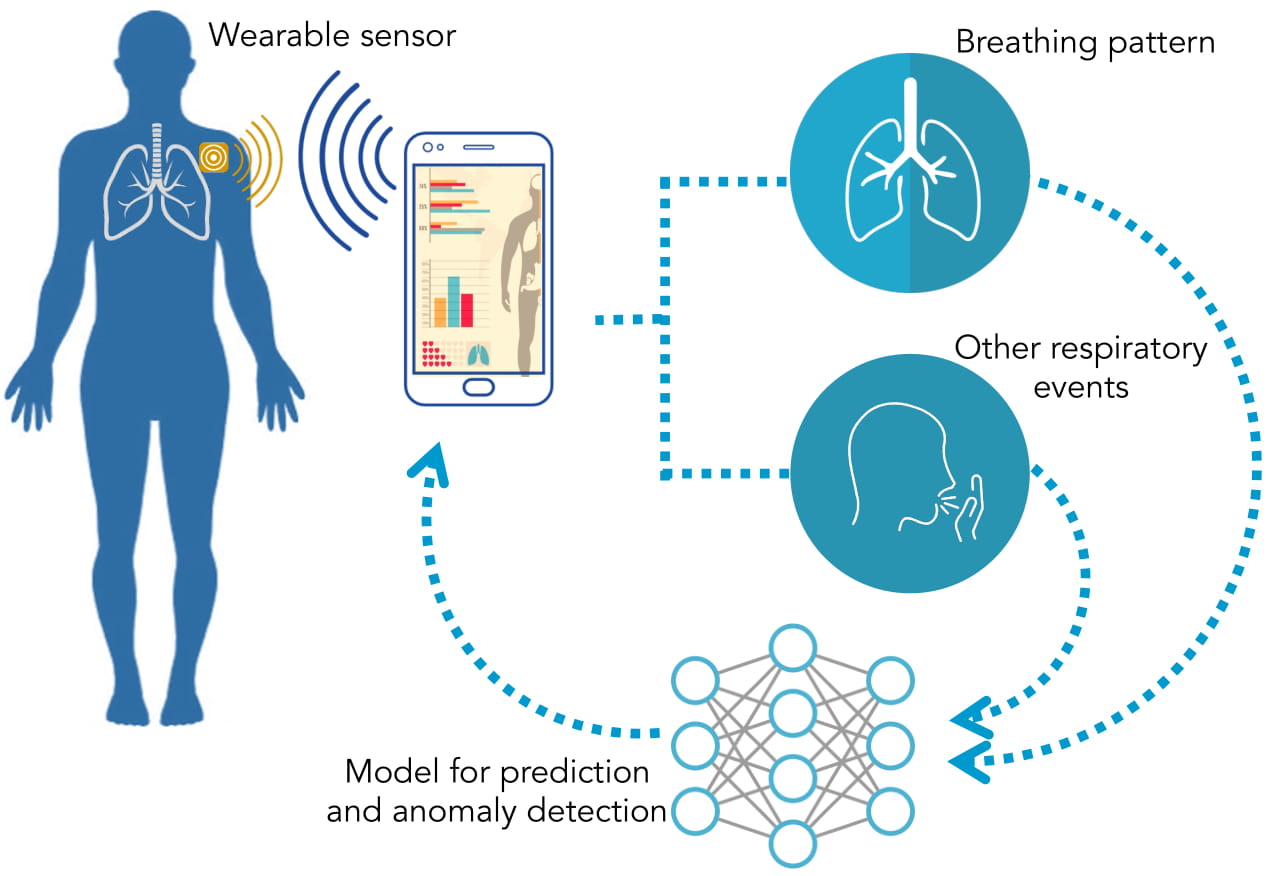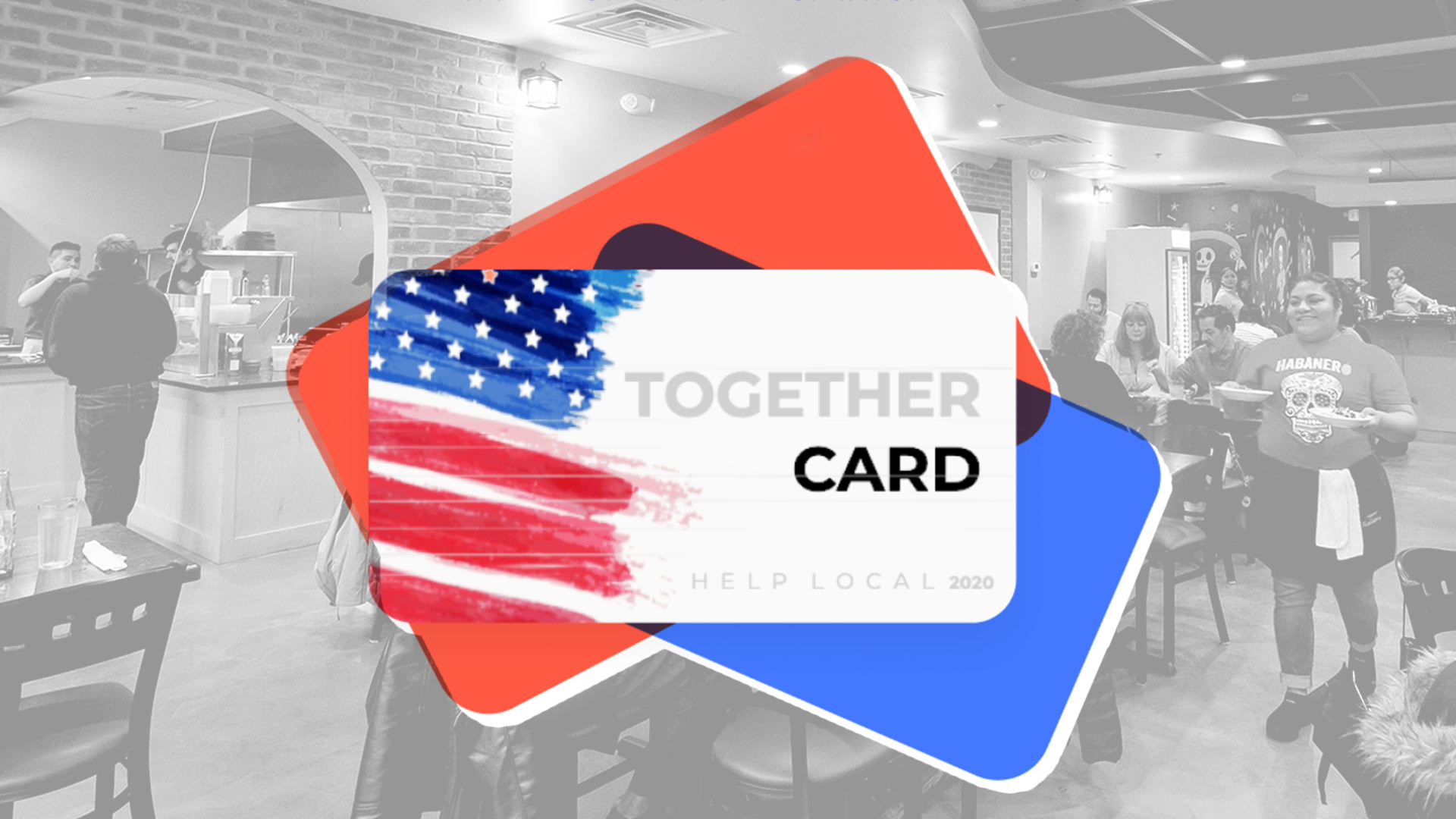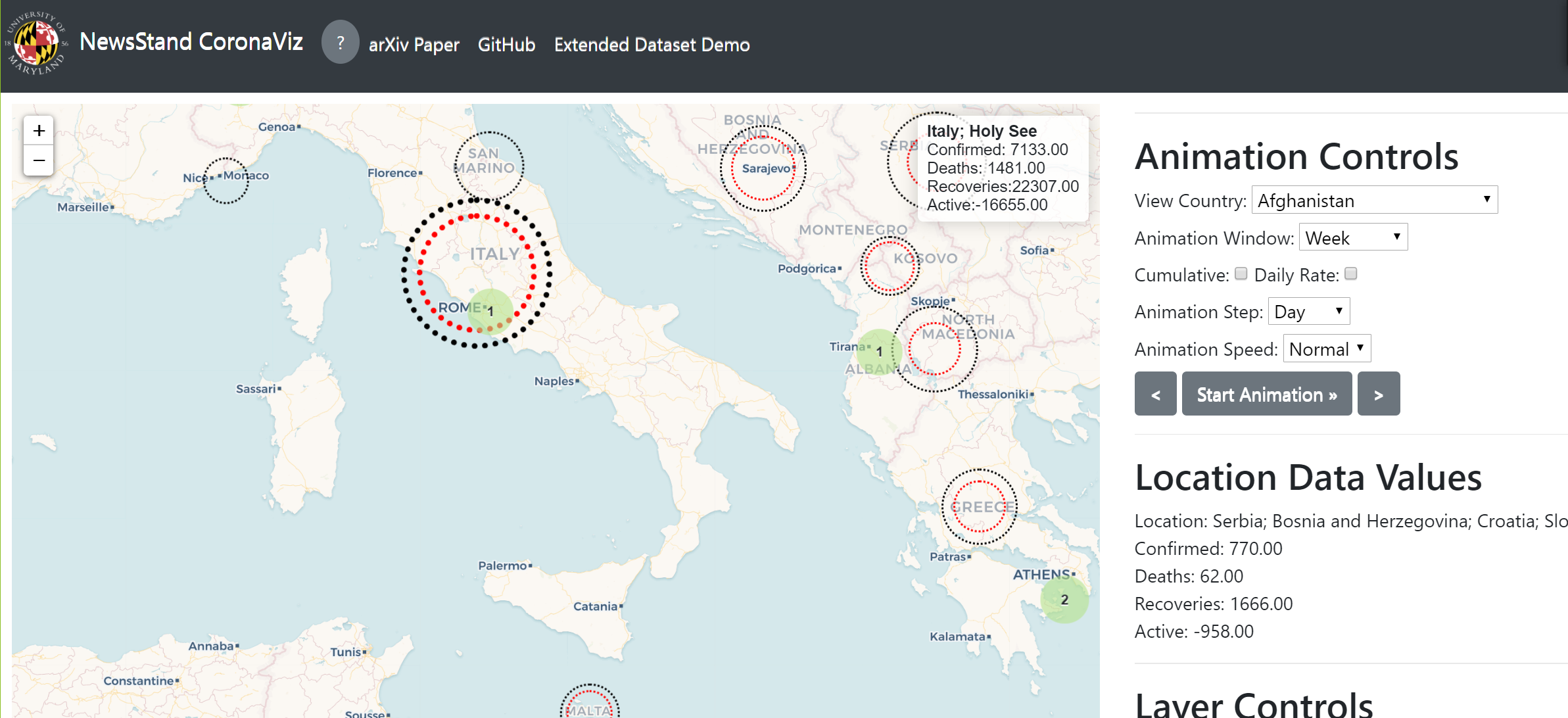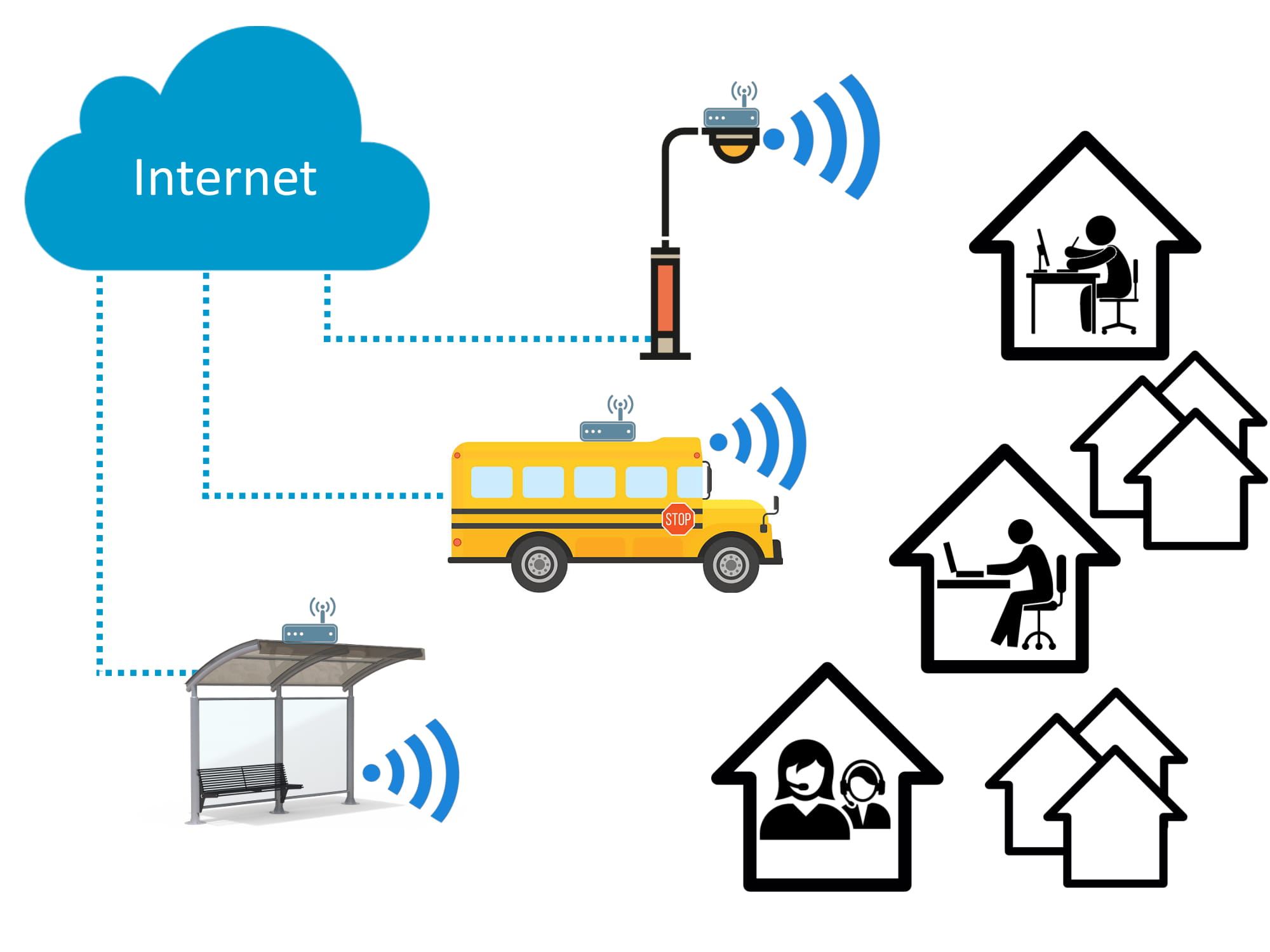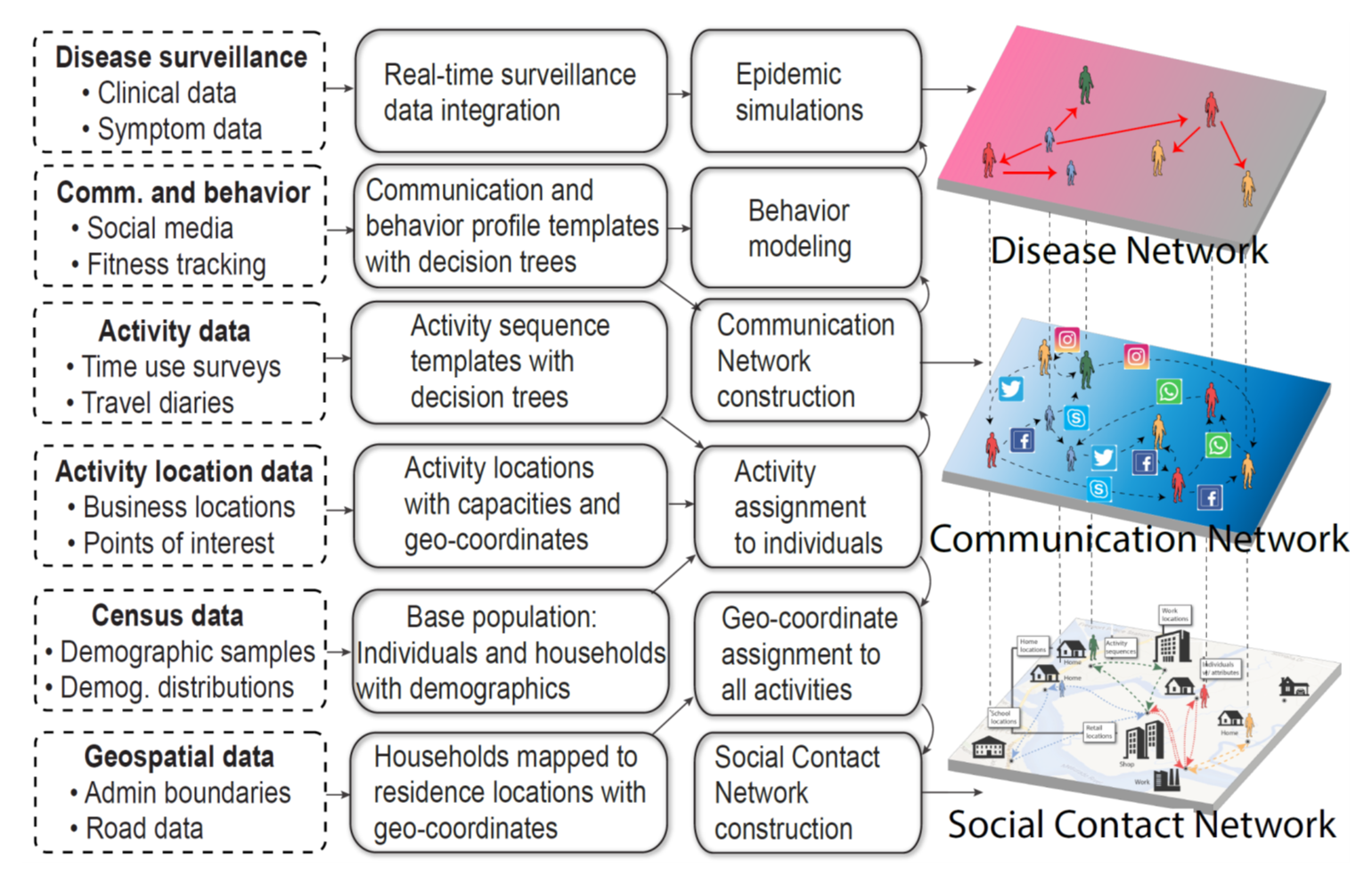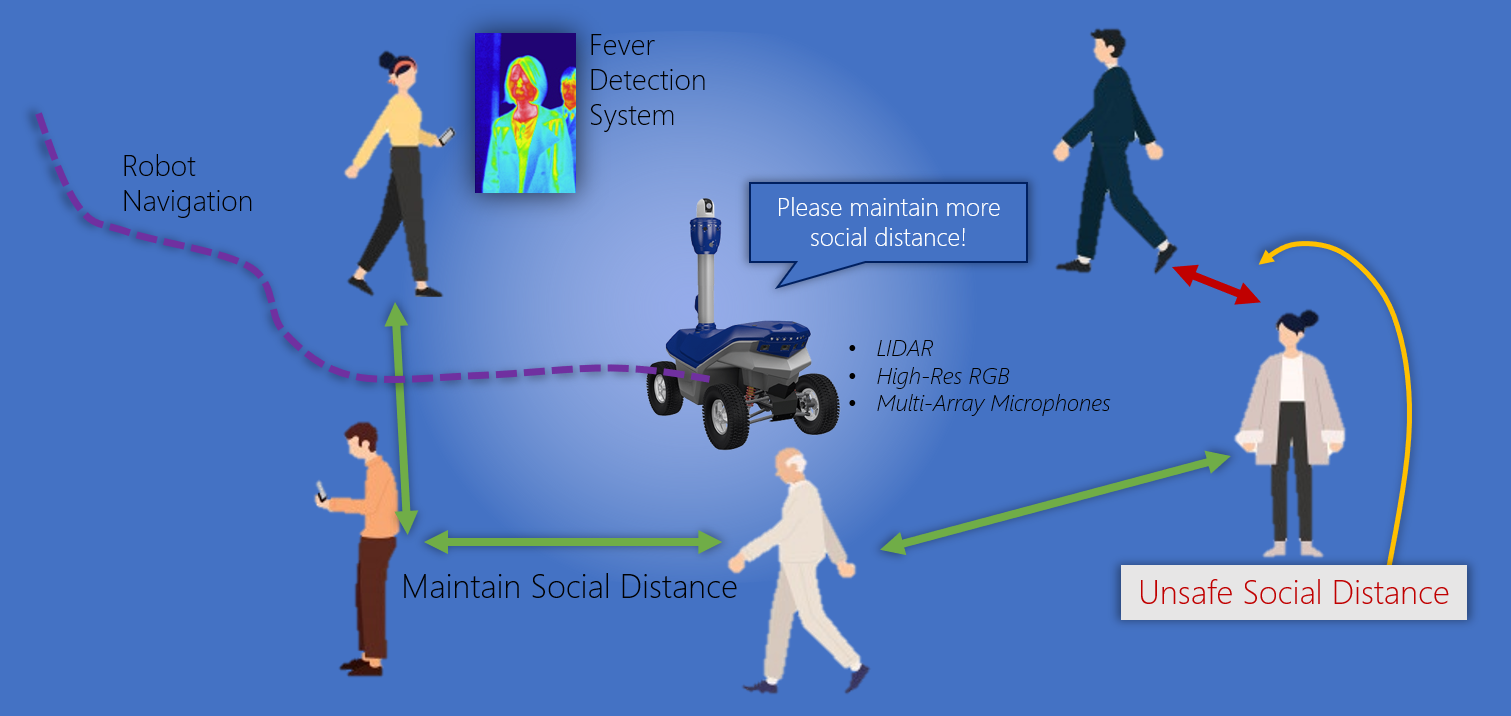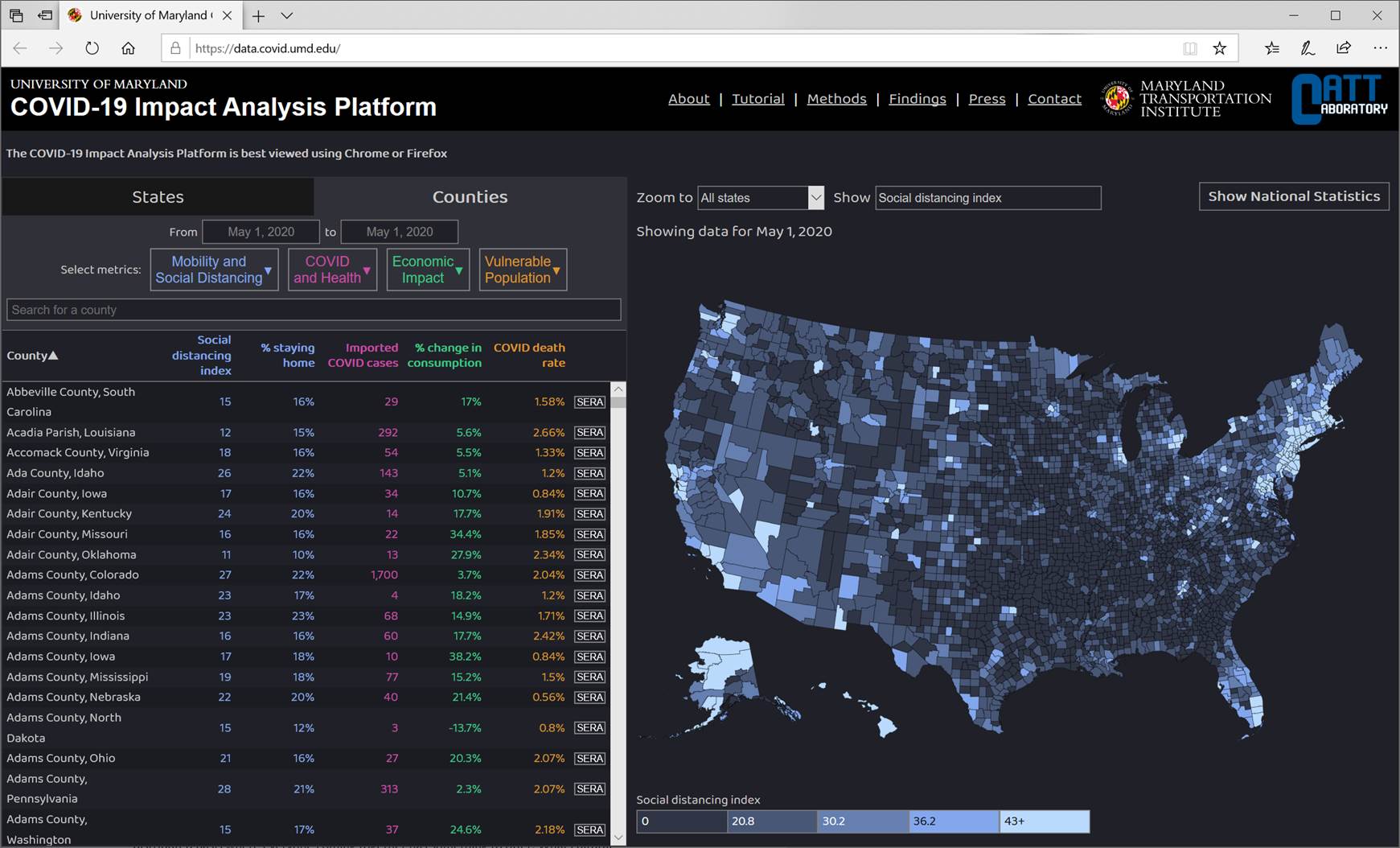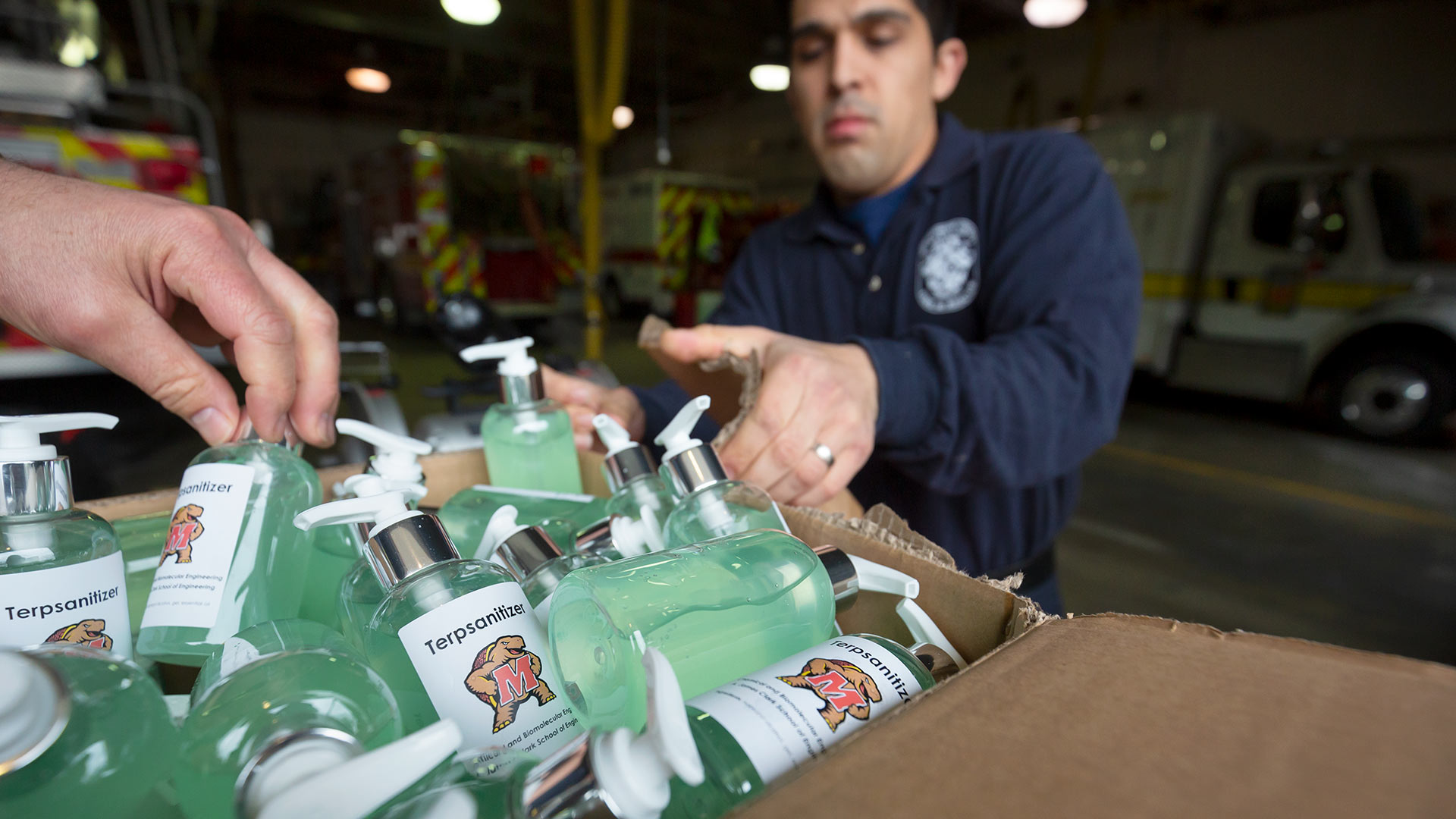From Data Analytics to Models: Developing New Tools to Combat COVID-19 through Computing
From Data Analytics to Models: Developing New Tools to Combat COVID-19 through Computing

Johns Hopkins data suggests that millions of people are infected and over one hundred thousand people have lost their lives in the US. Analyzing the COVID-19 data would develop a better understanding of the spread rate and the impacts of response mechanisms on the pandemic.
The Computer Science Department is at the center of this response mechanism. The researchers at the department have come together with our alumni, corporate partners, and colleagues from several other departments across the UMD campus to discover and develop scientific responses to fight the deadly pandemic.
Here are some ongoing key initiatives against COVID-19 that the CS department has undertaken:
Classifying CT images for COVID-19 diagnosis
COVID-19 has led to hundreds of millions of cases and millions of deaths worldwide since its onset. The fight against this pandemic is on-going on multiple fronts. While vaccinations are picking up speed, there are still billions of unvaccinated people. In this fight against the virus, diagnosis of the disease and isolation of the patients to prevent any spread play a huge role. Machine Learning approaches have assisted in the diagnosis of COVID-19 cases by analyzing chest X-rays and CT-scan images of patients. To push algorithm development and research in this direction of radiological diagnosis, a challenge to classify CT-scan series was organized in conjunction with ICCV, 2021. In this research we present a simple and shallow Convolutional Neural Network based approach, TeliNet, to classify these CT-scan images of COVID-19 patients presented as part of this competition. Our results outperform the F1 `macro' score of the competition benchmark and VGGNet approaches. Our proposed solution is also more lightweight in comparison to the other methods.
Developing Artificial Intelligent Tools to Improve Mental Health Diagnosis for Telehealth Behavioral Health Services during COVID-19
GAMMA recently received the MPower COVID-19 Response Fund Award for their project titled “Developing an artificial intelligence tool to improve caregiver engagement for rural child behavioral health services”. GAMMA Professors Aniket Bera and Dinesh Manocha at UMD College Park will be working with University of Maryland Baltimore Medical School Researchers and Psychiatrists Gloria Reeves, Susan dosReis, and Kay Connors.
The project aims to develop AI tools and algorithms to improve mental health diagnosis for Telehealth Behavioral Health Services during COVID-19. With the recent pandemic, most of these services are provided virtually through videoconferencing platforms. The study includes collecting and analyzing information from videotaped sessions (e.g. speech patterns, facial expressions, heart rate sensors, sweat detection) and assessing the relationship between artificial intelligence measured engagement with the provider and caregiver-reported engagement in care. The research also focuses to investigate the association of social isolation with perceived caregiver engagement. This data will be used to improve provider training and develop a tool that provides real-time feedback to providers on caregiver engagement.

Louiqa Raschid Receives NSF Funding to Improve Supply Chain Knowledge Networks for COVID-19 Medical Supplies
Affiliate Professor Louiqa Raschid recently received NSF funding for developing a knowledge network to connect suppliers, manufacturers and businesses to build robust medical supply chains and disseminate information in response to COVID-19 crisis.

Advanced Topic Modeling Methods to Analyze Text Responses in COVID-19 Survey Data
As the COVID-19 pandemic continues, public and private organizations are deploying surveys to inform responses and policy choices. Survey designs using multiple choice responses are by far the most common -- despite the fact that when you allow people to provide unconstrained spoken or text responses, it is possible to obtain richer, fine-grained information clarifying the other responses, as well as useful bottom up information that the survey designers did not know to ask for. A key problem is that analyzing the unstructured language in open-ended responses is a labor-intensive process, creating obstacles to using them especially when speedy analysis is needed and resources are limited.
Led by Professor Philip Resnik, PhD students Alexander Hoyle and Pranav Goel are working towards developing new computational methods for fast and effective analysis of survey data that includes text responses.The NSF funded project aims to support organizations doing high-impact survey work related to COVID-19 response. This will improve these organizations' ability to understand and mitigate the impact of the COVID-19 pandemic.The project's technical approach builds on recent techniques bringing together deep learning and Bayesian topic models.
In addition to development of new computational analysis techniques, the research efforts include assisting in the analysis of survey data for partner organizations doing COVID-related surveys, conducting independent surveys aligned with their needs to obtain additional relevant data, and the public release of a clean, easy to use computational toolkit facilitating more widespread adoption of these new methods.
SEAM Lab Brings HUGS to COVID-19 Patients
The culminating experience for students of software engineering at College Park is a capstone course that challenges them to draw on all their newly-acquired skills in order to solve a real problem in a project of substance. Think of it as finishing school for young technologists before they head off to industry or grad school.
This semester’s capstone activities started like any other. Through the SEAM lab (Software Engineering at Maryland) students under the mentorship of Professor James Purtilo have been collaborating with the community health nonprofit AFFORDABLE in order to improve the lives of vulnerable socioeconomic populations by connecting them with donors of HUGS – “health utilizing grants.” AFFORDABLE’s web portal will host a ‘universal application’ to eliminate application fatigue, so once someone enters basic information, AFFORDABLE will coordinate applications with many likely donor groups. It’s a powerful multi-semester project that crosses many organization boundaries and brings a host of tech challenges – exactly the stuff of a capstone.
2020’s spring semester may have started like any other, but then came the pandemic. “In software we teach ‘change is inevitable’ intending that engineers learn how to design for it, but this change was a doozy,” said Purtilo. “With COVID-19 cases rising and the economy falling, we pivoted. Instead of rolling out all services later this year, we concentrated effort on an early release of basic services.” The team hit its mark by finals week – a remarkable sprint capped by AFFORDABLE delivering its first HUGS to people in need.
Continuous Analytics for Pulmonary Functions Monitoring
COVID-19, the disease caused by the novel coronavirus, affects lung functionality, and leads to respiratory complications. It may leave long-term pulmonary health consequences. Professor Ashok Agrawala and Assistant Professor Nirupam Roy are developing wearable sensors and analytical systems for continuous lung function monitoring during recovery and rehabilitation. This mobile-health system also targets onset prediction in healthy users and identification asymptomatic carriers through anomalies in breathing patterns.
TogetherCard is Helping Small Businesses Raise Funds through COVID-19 by Facilitating the Purchase of e-Gift Cards
Alums Marcellus Davenport ’18 and Michael Wittner ’19 making a difference during the pandemic by helping small businesses and appreciating frontline workers through TogetherCard. The small-business gift card search engine , is working with businesses to create win-win fundraisers and sharing the businesses' stories.
NewsStand CoronaViz: A Map Query Interface for Spatio-Temporal and Spatio-Textual Monitoring of Disease Spread
Distinguished University Professor Hanan Samet is working towards developing the NewsStand CoronaViz (CoronaViz for short) - a web application based on the NewsStand system, in order to track the progress of the virus over time to be better prepared to anticipate its emergence and spread in new regions as well as its decline. A web application that can run on desktops and mobile devices, allows users to explore the geographic spread in discussions about the virus through analysis of keyword prevalence in geotagged news articles and tweets in relation to the real spread of the virus as measured by confirmed case numbers reported by the appropriate authorities.
This web application provides access to users to dynamic variants of the disease-related variables corresponding to the numbers of confirmed cases, active cases, deaths, and recoveries (where they are provided) via a map query interface.
Bridging the Connectivity Gap Through Internet Access for All
COVID-19 has made the homebound population more dependent on Internet access for information, education, and business. Closed facilities due to the current pandemic situation have exposed the true depth of the digital divide in low-income urban communities; it has turned into an education divide and left unconnected adults without access to crucial information, support programs, and mobile health solutions. Professor Nirupam Roy has joined forces with UMD’s Smart Cities Initiative and the National Center for Smart Growth to develop alternative infrastructures and network models that can deal with this crisis by providing free access to the Internet.
Global Pervasive Computational Epidemiology
Professor Aravind Srinivasan is leading a team from UMD in developing transformative and scalable computing & data-science technologies to address fundamental problems in real-time epidemic science. One major goal is the development of a rigorous computational theory of spreading & control processes on dynamic multi-scale, multi-layer (MSML) networks, along with tools from AI, machine learning, and social sciences – together providing novel insights to control epidemics.
COVID-19 Prevention Robot in Dense Areas
The UMD GAMMA team is leading the research of developing novel COVID-19 Prevention Robots (CPR) using mobile robots and commodity sensors to help deal with the challenges arising from COVID-19. A study driven by the recent pandemic focuses towards meeting the challenges of social distancing in dense and crowded settings.
Data Visualization’s Breakthrough Moment in the COVID-19 Crisis
Distinguished University Professor and Founding Director of Human-Computer Interaction Laboratory Ben Shneiderman is working with Research Scientist Catherine Plaisant to develop resources that catalog the numerous interactive data visualizations of the COVID-19 crisis. Their aim is to provide better information for public use and aid in better understanding to the decision makers in producing efficient guidelines in saving lives. Shneiderman’s recent article highlights the valuable role of visualization to inform the public, help hospital managers plan, and guide government policymakers.

Other UMD Efforts Related to COVID-19 @ College of Computer, Mathematical & Natural Sciences
The College of Computer, Mathematical & Natural Sciences has several COVID-19 stories highlighted at this site.
Other UMD efforts related to COVID-19 @ A. James Clark School of Engineering
The A. James Clark School of Engineering has several COVID-19 projects highlighted at this site.

